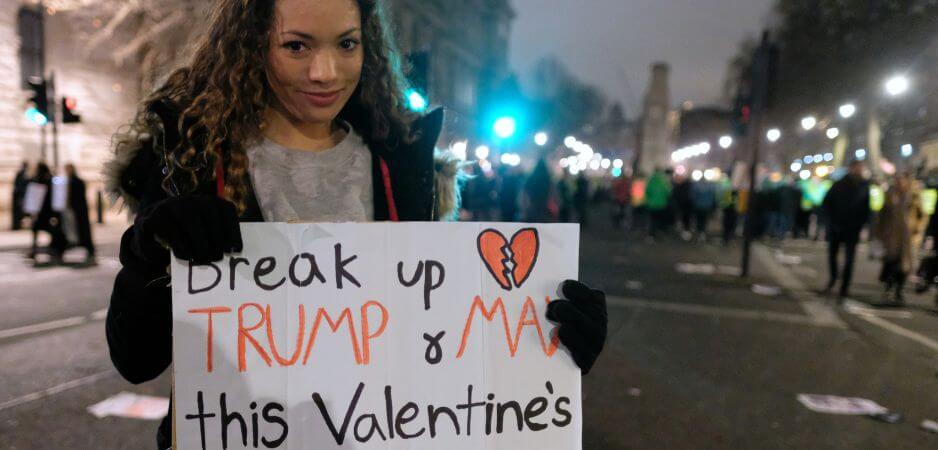The US values the “special relationship” with Britain only by the net benefit to America.
Relations between the United States and Britain are close, the result of intermingled families, culture, common language, an interlocking history and to a certain extent an Anglo-Saxon mindset—though this is clearly a fast declining asset. But the “special” government relationship, the supposed intensity of a shared foreign policy and an open intelligence exchange is an illusion wished for by the British elite. The American side has always seen the relationship as transactional, not special, though they often use the term as a way of grooming their British interlocutors.
The reality is there are no free rides based on sentiment. From the US point of view, the relationship will only be special—i.e. on a better standing than all other allies of the US—if the United Kingdom brings unique assets to the table. But the UK no longer has any unique assets and, what is more, the assets it has are fast depreciating. The only thing special about the British ruling class now is they still crave to be called “special”—even by Donald Trump.
Flummery and Symbolism
Prime Minister Theresa May’s early invitation to the court of President Trump—the first by a foreign head of government—was a nod to the long standing alliance between the UK and US. May’s offer of a bribe, the invitation for a state visit, was a clincher playing straight to Trump’s vanity. For Trump, the photo-op with the queen and assorted royals will be one up on the high society New Yorkers who have shunned him for years as that common arriviste. However, despite the flummery and symbolism of the return of the bust of Winston Churchill to the Oval Office, the US values the British relationship only by the net benefit to America.
The intelligence exchange is often held up as the jewel in the crown of the special relationship. In fact, US agencies are all instructed to certify every year that the UK gives more intelligence to Washington than the other way around. The UK does produce a great deal of intelligence from Government Communications Headquarters (GCHQ) and MI5 and MI6 intelligence agencies, but in itself it is only a fraction of the US production.
The UK even allows the Central Intelligence Agency (CIA) to collect intelligence in Britain itself—an amazing surrender of sovereignty. The irony is the UK no longer has the strategic defense interests that require the intelligence its services produce. A good example is Chinese expansionism in the South China Sea. The United Kingdom has zero influence on any sides of the dispute, and no strategic interests beyond the general all-purpose one of peace and stability.
The same might be said of British sovereign bases in Cyprus. In the past, these were strategic assets to support the UK’s bilateral military and political interests in the Middle East. If you ask the UK military what the purpose of these bases is now, they will tell you they are mainly intelligence gathering platforms, which in turn are in support of US interests. The tail is wagging the dog. The intelligence world is thus dominated by US priorities and policies, and, in consequence, the UK’s decisions are based almost entirely on the US intelligence picture. Britain sees the world through the same lens as the US.
Practical Matters
When it comes to practical matters, the US makes decisions and the UK gets to hear about them afterward, though the Brits may be the first to be told—no special relationship in terms of policymaking. In 1986, when President Ronald Reagan almost agreed with Mikhail Gorbachev to eliminate all nuclear weapons, Margaret Thatcher was horrified: The whole of NATO defense policy had just been overturned.
Similarly, in 1983, when the US invaded Grenada, whose head of state is the queen, the UK was told after the fact. And of course with the decision to invade Iraq in 2003, Britain was informed about it well after it had been decided upon. The same is going on right now as the Trump administration forms its policies toward Israel, Iran and China. There is no joint policymaking—there are just US interests which later on the UK could be invited to share.
This aspect of the special relationship boils down to fact that Britain is just the first to be asked to support US decisions. Sounds more like a special pet than a special relationship.
And what does the UK get out of this? The illusion of being best friends with the biggest kid on the block. The warm feeling that Britain is still at the top table. And acres of British newsprint about how the UK government is so important. The reality is that while Theresa May will get some face time with Donald Trump, her ministers and other senior members of her government will struggle mightily to even get noticed in Washington.
The British Embassy’s recurrent nightmare is trying to arrange a “suitable” program for every self-important UK minister who visits Washington and whom none of the US cabinet cares twopence about.
As for trade and investment: The US will show not a shred of sentimentality and continue to do business as it suits. With the UK out of the European Union it will suit less and less often. The brutal US treatment of British Petroleum (BP) after the Deepwater Horizon spill is a reminder of how little sentiment counts in the American business world. There will be no special carve-outs for the UK when Trump starts introducing tariffs on imports either.
And those acres of newsprint in the UK? Nary a squeak about Britain in the US media unless it is about Prince Harry’s American girlfriend.
The views expressed in this article are the author’s own and do not necessarily reflect Fair Observer’s editorial policy.
Photo Credit: Fredex8
Support Fair Observer
We rely on your support for our independence, diversity and quality.
For more than 10 years, Fair Observer has been free, fair and independent. No billionaire owns us, no advertisers control us. We are a reader-supported nonprofit. Unlike many other publications, we keep our content free for readers regardless of where they live or whether they can afford to pay. We have no paywalls and no ads.
In the post-truth era of fake news, echo chambers and filter bubbles, we publish a plurality of perspectives from around the world. Anyone can publish with us, but everyone goes through a rigorous editorial process. So, you get fact-checked, well-reasoned content instead of noise.
We publish 2,500+ voices from 90+ countries. We also conduct education and training programs
on subjects ranging from digital media and journalism to writing and critical thinking. This
doesn’t come cheap. Servers, editors, trainers and web developers cost
money.
Please consider supporting us on a regular basis as a recurring donor or a
sustaining member.
Will you support FO’s journalism?
We rely on your support for our independence, diversity and quality.







